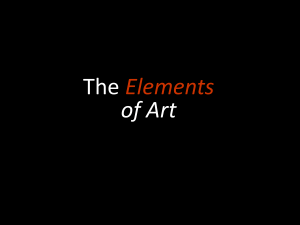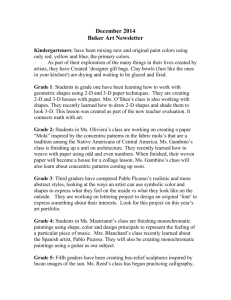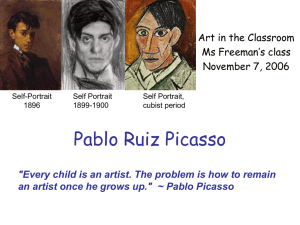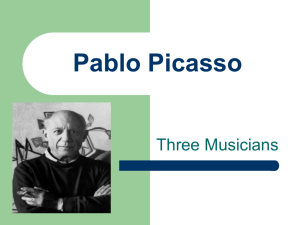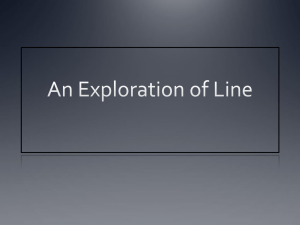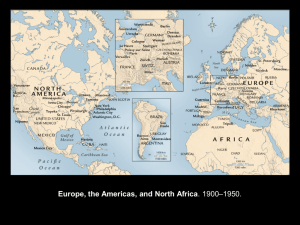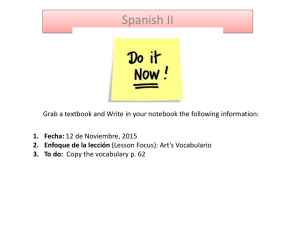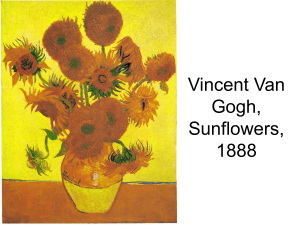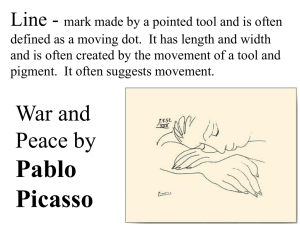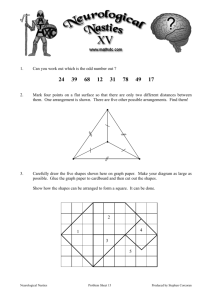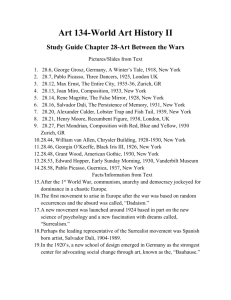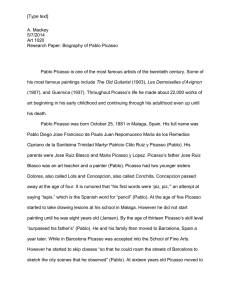Chapter 23
advertisement
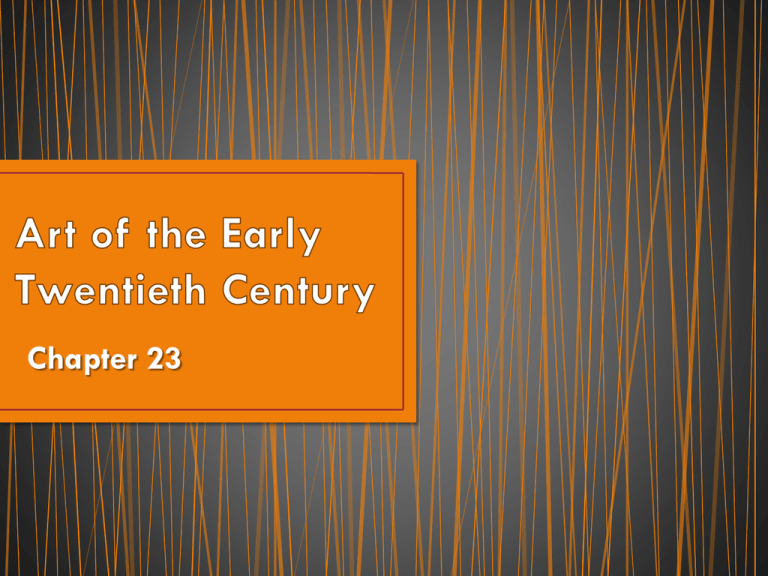
Chapter 23 • Fauves = “Wild Beasts” • simple design • bright colors • loose brushwork • art = a form of personal expression •Purpose: to express happiness and pleasure •Emphasis on design and organization of visual qualities •The Red Studio •The Knife Thrower Walls have no corners Round objects look flat No shadows Simple shapes and few colors • Artworks communicated strong emotional feelings • Brucke Manifesto: •the young and new should replace the old and established •art should be first and foremost about life. •Founder •Street, Berlin •expresses the tension and artificial elegance of the city. Faces are masks: cardboard with slashes for the mouths and eyes. True faces remain hidden. • Purpose: •protest the tragic plight of the poor before and after WWI • Expressed ideas in etchings, woodcuts, and lithographs • Poverty • Subject matter •fear, suffering, and experience of death • Showed the world through the eyes of those in anguish • The Sick Child • The Scream One version sold May 2, 2012 for $119.9 million • style that uses color, line, texture, and unrecognizable shapes/forms. • No apparent references to reality • Blaue Reiter (Blue Rider) •Collective of artists united by desire to express inner feelings in their paintings, though their styles differed. • Believed that art elements could be arranged to communicate feelings and emotions • Art should NOT illustrate an object. • Improvisation 28 (Second Version) • Georges Braque and Pablo Picasso • Influences: •Cézanne: all shapes in nature are based on the sphere , the cone, and the cylinder •Paint 3-dimensional objects as if seeing them from many angles at once on a flat surface The Glass of Absinthe – Pablo Picasso Guernica -- Pablo Picasso • Add materials to painting surface •Cloth, Newspaper clippings, labels • Purpose: to make surface of paintings richer • Guitar – Pablo Picasso Chapter 23 Lesson Two • After Mexican Revolution of 1921 • Subject matter: political and social problems of the Mexican people • Used to tell of revolutions, native traditions, festivals and legends • On both interior and exterior walls • Meant to be public property • A founder of Mexican mural painting • Studied art of Italian fresco artists • Liberation of the Peon •Revolutionary soldiers cut the ropes binding a dead peon (peasant) •Peasant’s liberation is in death •“The Mexican Goya” •Express anger for all forms of tyranny •Zapatistas •Barricade Zapatistas Followers of Emiliano Zapata march to battle Barricade/La Trinchera • A founder of Mexican mural painting • Subject: political • Echo of a Scream •Protest against war •Overlapping flat shapes •Variety of contrasting light and dark values •Abstract design •Gradation of value to create a 3-D quality and project forms forward in space • Overlapping flat shapes • Variety of contrasting light and dark values • Abstract design • Gradation of value to create a 3-D quality and project forms forward in space • Not a muralist • Purpose of art to express personal feelings about herself • Frida and Diego Rivera •Wedding portrait •Solemn expressions = uncertainty about future • Group of artists who made realistic pictures of the most ordinary features of the contemporary scene • Goal: record the city’s color, excitement, and glamour • Nightlife, cafes, streets, alleys, theaters • Backyards, Greenwich Village •Each element leads to another as view it •Illustrates child’s gift of finding joy and pleasure in almost any situation • Similar to those of Ashcan school but not one of them • Subject: sports • Stag at Sharkey’s • Determination and action captured with strong diagonal lines and blurred contours • First large exhibition of modern art in America • Featured both European art (Fauves, Cubists, Expressionists) and American art • New York later replaced Paris as the art capital of the world
